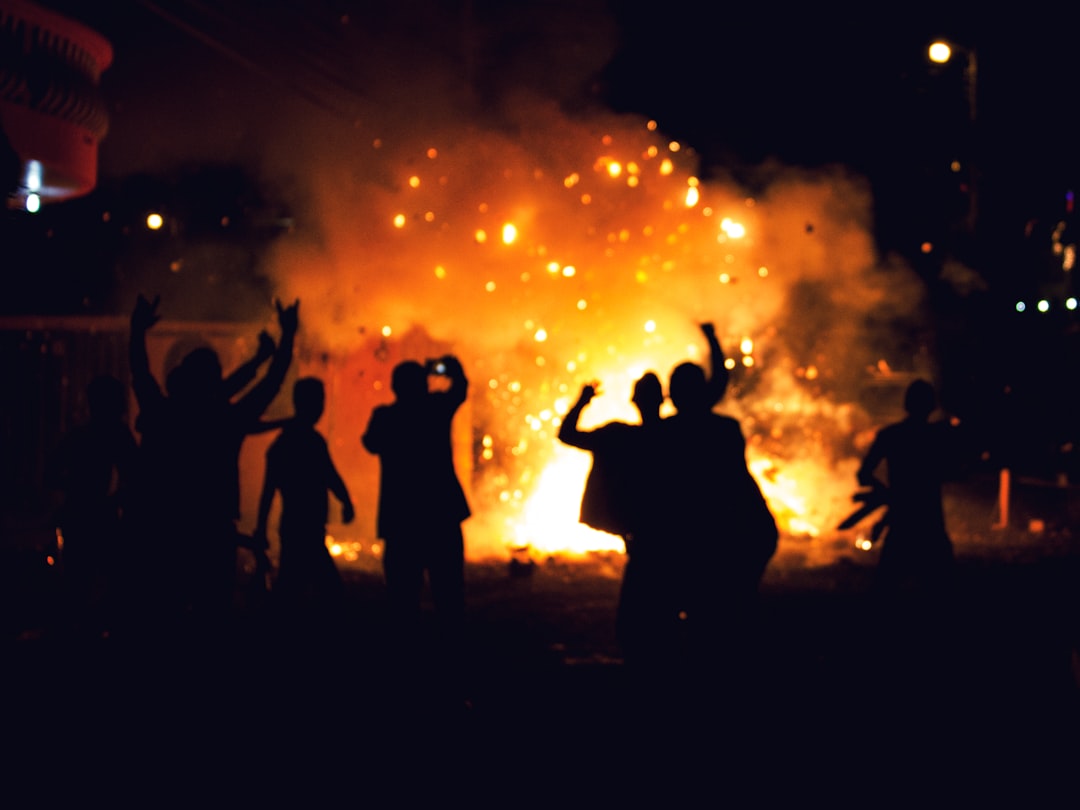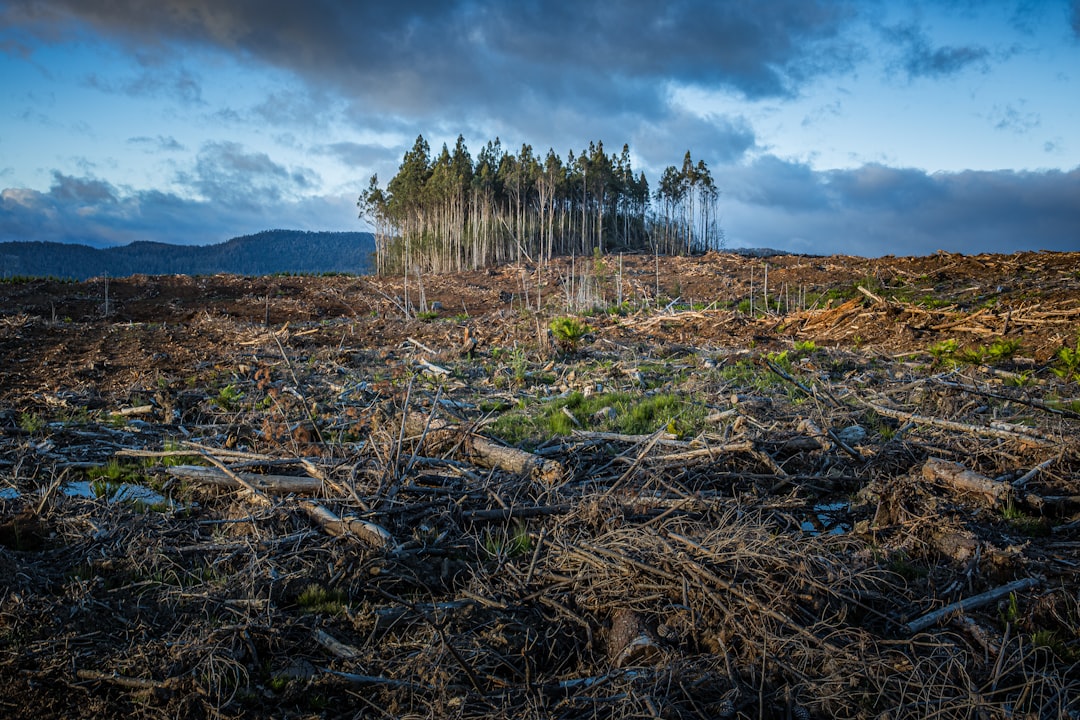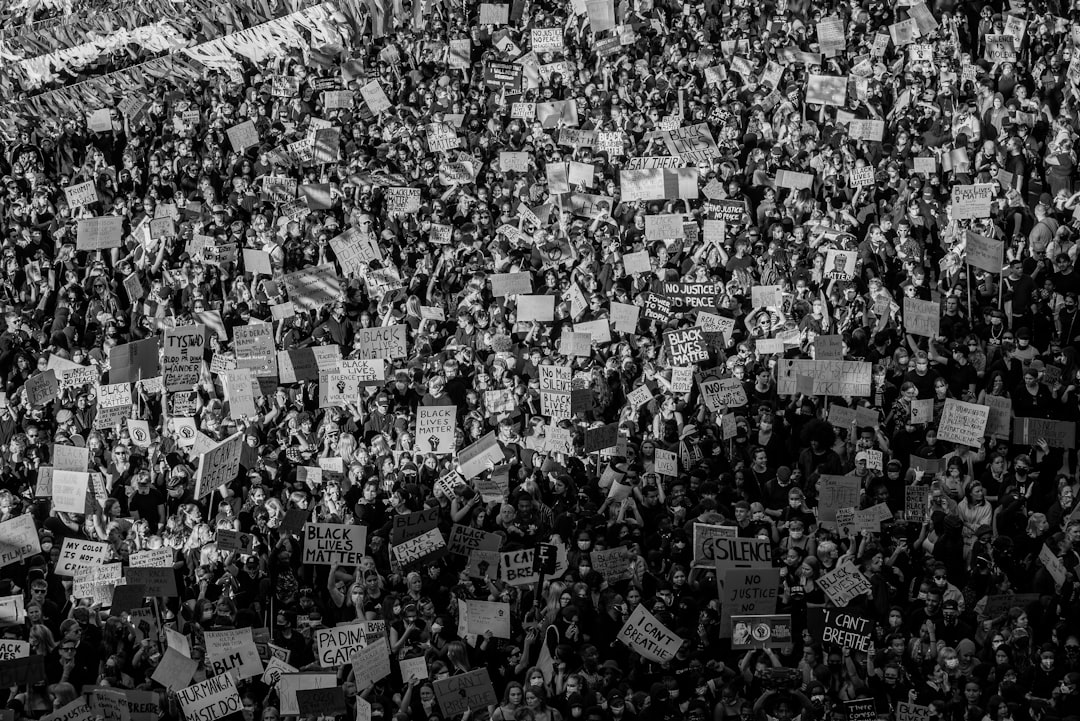Being Uncertain in Uncertain Times
What would it look like to let go of thinking we know what's next?
“In an era of stress and anxiety, when the present seems unstable and the future unlikely, the natural response is to retreat and withdraw from reality, taking recourse either in fantasies of the future or in modified visions of a half-imagined past.” - Alan Moore, Watchmen

It can sometimes feel like everywhere we look we see instability. We have a former President, now running again, who doesn’t care about the Constitution, or any law, really. Around him is a party of election deniers and increasingly overt fascists willing to enable him, or jump ship to the next more composed and likely more dangerous fascist. Climate change will very likely disrupt the planet on an unprecedented scale within the coming decades. We see labor agitation surging, but the party in power is all too willing to stop workers for striking, which might well provoke even more unrest and confrontation in the long-run. And, we haven’t emerged from a global pandemic, despite what many people might like to think.
We live in uncertain times, where the present seems unstable and the future can appear unlikely. And all around us we see people grasping onto fantasy. For conservatives this increasingly looks like turning to an illusion of the past, a false reconstruction of a golden era where men were men, white people were on top, and things like sexism and racism were facts of life rather than systems to be opposed. This is a pillar of fascist movements, these visions of national glory divorced from the truth that back then most white folks were actually living hard scrabble lives either in factories or fields, and even more divorced from the fact that these same racist tropes and scapegoating tactics conservatives are rekindling today were used to keep working class white people angry at Black folks, and to keep that anger away from rich whites. But even though these illusions might seem weak and transparent to many of you reading this, we should keep in mind that this fascistic approach can gather momentum in uncertain times, and is gaining power in this uncertain moment.
And our response can’t just be to deny uncertainty, I think. We can’t deny that people feel the world is more tumultuous than ever, and are running from that feeling into dangerous territory. Of course some people were already in that destructive territory to begin with, but others are responding to a changing world in ways that are extremely harmful. And it’s true that things are changing rapidly in many, many ways all at once. Most adults have lived through a technological revolution in our lifetimes. When I was a kid my parents were playing tapes in the kitchen and had a VCR under the TV. Now they connect their cellphones (which didn’t exist not too long ago) to a speaker in the kitchen while they cook and movies somehow fly into their TV from the cloud. Once in a while I’ll see a story about someone being released from prison after thirty or forty years, getting in a car, and freaking out when a phone call comes in through the car speakers. Things have changed and are changing quickly, and as important as the change itself is the way these changes make people feel.
A good friend of mine is a therapist, and we were talking once about how many people feel society is in turmoil, even if their lives are fine. In particular we were talking about how conservatives look at the lives of trans folks and translate what’s happening in others peoples’ lives around gender into a sense of chaos and instability in society as a whole. To put it more succinctly, an oddly large number of people feel that their world is less stable because other folks aren’t conforming to their gender norms. Many conservatives now argue that the queer community is harming children (with zero evidence, because this is made up) and destroying society, while internally, on a personal level, they feel something my therapist friend called “Psychic equivalence.” Now I’m not a psychologist, and only did so-so in my Psych 101 class, but my understanding is that psychic equivalence loosely means a state where what is happening internally, in the mind, is conflated with what is happening externally, in the world. In the case of the modern conservative, and maybe conservatives throughout time, what that looks like is feelings of instability and uncertainty at the thought of more folks being gender non-conforming, for example, are externalized and extrapolated into the idea that society is unstable and misguided.

Now we should also be clear that a lot of the people whipping up panics about drag queens and trans kids are simply evil propagandists. They see the profit to be made in scapegoating vulnerable people, and that’s it. But, there’s also a reason they have a receptive audience, unfortunately. In uncertain times, people look for certainty.
And it’s not just conservatives. They’re buying something especially nefarious and dangerous right now, but most of us are looking for something to latch on to. Liberals are, in many cases, clinging to the Constitution and elections and our (semi) democratic process. Despite, or even in response to Trump challenging election results, inspiring a coup attempt, and now saying the Constitution should be ripped up, a lot of liberals have simply doubled down on our country’s existing methods and systems. And I get it. In the eyes of many people our institutions have worked so far, and will continue to prevail. As much as I may disagree with both of those sentiments, I get where they’re coming from. More than anything, in my opinion, it comes from a fear of the alternative. Because the alternative is these institutions, which have been pillars of society and of folks’ own internal sense of stability (which again is interconnected to the perceived stability of the outside world), failing, and something new and uncertain arising in their place.
Now, I’m someone who thinks we’re going to go a whole lot further down this unfamiliar and frightening path. I’ve seen people write about our future and say that a radical future is coming, one way or another, so the main question is will that radical future be beautiful and abundant and free, or will it be oppressive and fascistic and dangerous. This has been said in regards to climate, fascism, the way they intersect, and more. And it rings true to me. But even if it wasn’t, what could we gain by embracing uncertainty? Could we gain something by sitting with it, and accepting it, rather than running towards definite conclusions and the disappointments and mistaken convictions that often come with them?
Just to be clear, before I make any grand proscriptions, I rush to certainty all the time. I do it in my personal life when I find myself wanting clarity on difficult topics and situations instead of sitting in the muck, in the difficult and challenging. And I definitely do it on social media. Certainty sells, and when you have 240 characters to say something important it’s much easier and more attractive to say something definite and oversimplified than dive into the nuance and ultimately admit that you’re unsure. And I think a bunch of folks on the left do that, maybe not as much or with as negative an impact as conservatives, but we see people claiming to know the exact right path out of our societal issues and to a better future pretty frequently. Don’t get me wrong, I think there’s also a lot of wonderful people who don’t do this, and some principles that folks on the left try to practice and adhere to that are solid foundations we can rely on. I think an analysis of class, an anti-racist and anti-white supremacy approach, a critique of sexism and patriarchy, of homophobia and transphobia, and ultimately being grounded in care for the vulnerable and for everyone go a really long way. Dogmatism and sectarian-ness can, on the other hand, can get in the way. Yet, simultaneously, they’re appealing to people because they allow for a feeling of certainty about the path ahead.

So, I hope we can be certain about principles, and of course about the conviction that we need to organize and act and struggle, but not about the exact path. And even as we hold some certainty about principles I hope we do so in a way where we remain flexible, and strengthen our analysis and understanding of what they mean in practice rather than in abstraction. And that means experimenting (like the One Million experiments podcast discusses), and experimenting means uncertainty. I don’t know what the future will look like, and more importantly I don’t know exactly how to get there. The rapid change we discussed earlier, the magnitude and pervasiveness of our problems, and the powerful forces arrayed to keep these massive, harmful systems in place all make for difficult, uncertain times. So as we hold and grow our core principles I hope we can accept uncertainty rather than running for the balm, the salve of certainty that will most likely end up burning rather than comforting us as the world continues to destabilize and many certainties prove hollow and fragile.
What I’ll leave you with is that accepting that we just might not know how things will shake out, and might not even know exactly how to proceed sometimes, can bring some reward. Not only do we avoid the pitfall of having total confidence in failing systems, the pitfall of false hope, and the dangers of reaction, but accepting uncertainty can also open a door to infinite possibilities. It can keep us teachable in a time where we desperately need to learn and create and change. This is just as true for our internal condition as it is for the world. For me, letting go of one definite vision of the future is freeing. Once you let go of that specific picture other possibilities come into focus. Of course we need a world where peoples’ needs are met, where we can have strong and healthy communities, and where democracy is really practiced. But there’s not one path to that place. There’s a million people and organizations forging a million paths, and these paths have to be flexible and adaptable to navigate past the barriers in our way, and past the new ones that will surely be thrown up in front of us. So I hope we can release our grip on the desire to be certain and get comfortable in the unknown, in the uncertain, in the practice of conducting experiments that move us closer to liberation.

